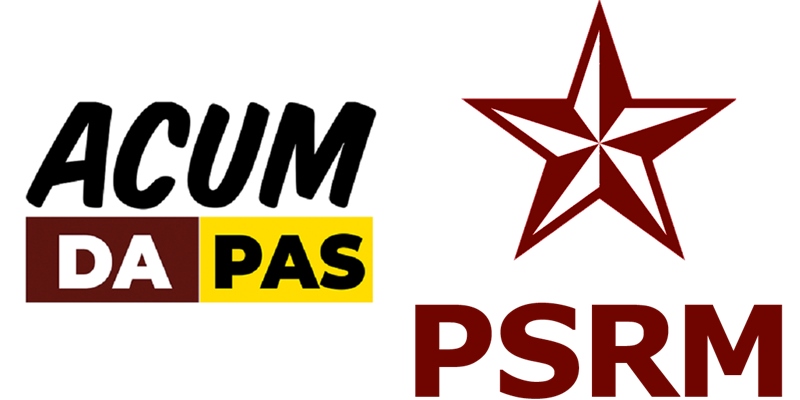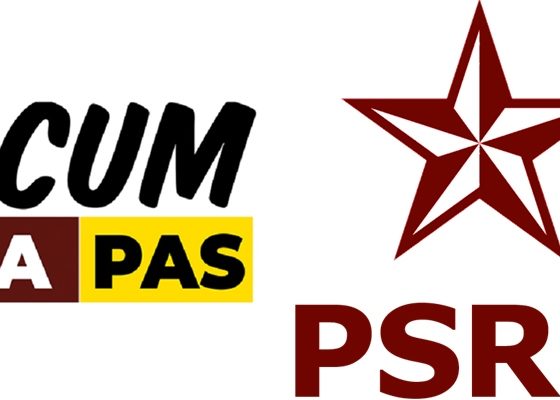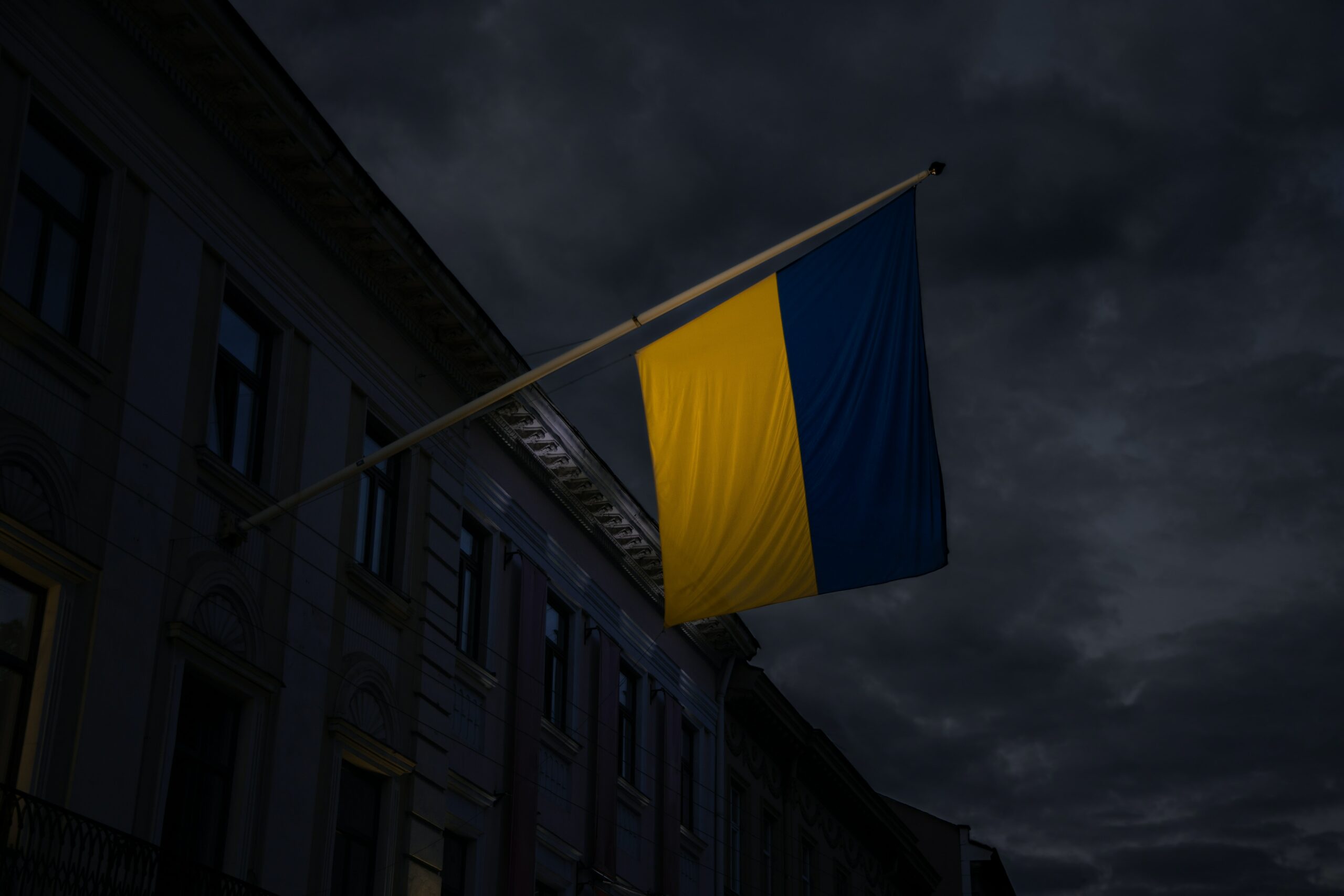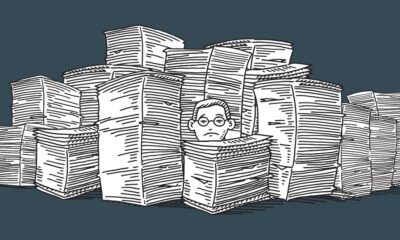

Opinion
Could the PSRM-ACUM coalition government be hindered by the results of local elections in Chișinău?
The results of the second round of local elections have been already made public. In the capital city of Moldova, where the fiercest fight was put up, the socialist Ion Ceban was elected the mayor of Chișinău by 52.39% of voters, whereas the total turnout was really low -only 40.34%. Generally, that was a historical moment, as for the first time a left-wing party representative won the local elections in Chișinău.
Ion Ceban started to announce today his future plans of restructuring the capital city and happily waits for the validation of his mandate. His counter-candidate Andrei Năstase – the representative of the political bloc ACUM – organised a press conference where he publicly acknowledged his defeat and announced his return to the Ministry of Internal Affairs (as he still remains the Deputy Prime Minister and Minister of Internal Affairs).
At first sight, things are cooling off and everyone seems to take over the responsibilities they are supposed to. But is that so?
Could the results of the local elections in Moldova trigger a crisis in the coalition government?
Andrei Năstase delivered the message that no coalition between ACUM and the Party of Socialists of the Republic of Moldova (PSRM) will be formed at the local level, after rejecting the proposal made by Ion Ceban to take over the positions of deputy mayor and praetors. He emphasised that no coalition in the municipality is needed as “any good project will be supported anyway.”
In this context, it needs to be taken into consideration that there is already a government coalition between ACUM and PSRM in the Parliament.
“Forming a coalition is not so important, but projects and concrete measures that bring added value to the life of the people from Chișinău and its suburbs. We do not make political coalitions for the sake of holding public functions. […] We do not accept this offer.”
“I am grateful for the availability of our colleagues from ACUM to support the projects of community interest. The proposal we made had the same purpose – to work together to solve the problems of the people and the municipality.”
Political analysts are convinced that the results of the local elections in the capital city will have an impact on the political bloc ACUM and its bilateral relations with PSRM.
Political analyst Veaceslav Berbeca claimed that after this defeat, Năstase will receive more negative reactions, but all this will not lead to the break-up of ACUM.
Political analyst Anatol Țăranu said that it is very difficult to understand how Năstase will proceed, at the same time, being obvious the fact that he is in a rather complicated situation. “The competition between him and Maia Sandu within the bloc will tighten, namely because Năstase has not succeeded and Sandu is winning in this competition. I do not know if Năstase will accept the second position in the bloc. He will have to take a step back… “ he stated.
Political scientist Dionis Cenușă believes that Andrei Năstase will return to the Ministry of Internal Affairs and will start a fierce competition with Maia Sandu, his colleague from the political bloc ACUM, for attention and popularity. “There will be headaches for the prime minister and the Government, who will have to make concessions to calm down the spirit of competition within ACUM,” says the expert. Moreover, he declared that it is totally absurd to deny the coalitions at the local level with that party with which you govern the country, even though ACUM believes that would help them to regain the political credit they had lost when associating with PSRM.
The first crack in ruining the government coalition could be considered the socialists’ official statement made today after the parliamentary faction of PSRM met with President Igor Dodon.
“The head of state expressed his concerns regarding the inefficiency of the Government and the increasingly negative perception citizens have about its activity. […] The biggest concerns were related to the serious deficiencies in the economic and social sector, the total lack of vision and actions to solve the problems of citizens, but also the dramatic situation regarding their security, as there are daily situations that endanger people’s life. Until now, the responsible institutions proved to be incapable of managing the situation, they failed to come up with concrete solutions and actions to protect the citizens,” is mentioned in the statement.
In this regard, the Party of Socialists expressed their intention to have discussions with their coalition partners from the Government and ministries and even make proposals for the replacement of ministers who, according to socialists’ opinion, are poorly managing their areas of responsibility.
Does it seems like an attempt at revenge for a previous rejection? Only time will tell.
Society
“They are not needy, but they need help”. How Moldovan volunteers try to create a safe environment for the Ukrainian refugees

At the Government’s ground floor, the phones ring constantly, the laptop screens never reach standby. In one corner of the room there is a logistics planning meeting, someone has a call on Zoom with partners and donors, someone else finally managed to take a cookie and make some coffee. Everyone is exhausted and have sleepy red eyes, but the volunteers still have a lot of energy and dedication to help in creating a safe place for the Ukrainian refugees.
“It’s like a continuous bustle just so you won’t read the news. You get home sometimes and you don’t have time for news, and that somehow helps. It’s a kind of solidarity and mutual support,” says Vlada Ciobanu, volunteer responsible for communication and fundraising.
The volunteers group was formed from the very first day of war. A Facebook page was created, where all types of messages immediately started to flow: “I offer accommodation”, “I want to help”, “I want to get involved”, “Where can I bring the products?”, “I have a car and I can go to the customs”. Soon, the authorities also started asking for volunteers’ support. Now they all work together, coordinate activities and try to find solutions to the most difficult problems.
Is accommodation needed for 10, 200 or 800 people? Do you need transportation to the customs? Does anyone want to deliver 3 tons of apples and does not know where? Do you need medicine or mobile toilets? All these questions require prompt answers and actions. Blankets, sheets, diapers, hygiene products, food, clothes – people bring everything, and someone needs to quickly find ways of delivering them to those who need them.
Sometimes this collaboration is difficult, involves a lot of bureaucracy, and it can be difficult to get answers on time. “Republic of Moldova has never faced such a large influx of refugees and, probably because nobody thought this could happen, a mechanism of this kind of crisis has not been developed. Due to the absence of such a mechanism that the state should have created, we, the volunteers, intervened and tried to help in a practical way for the spontaneous and on the sport solutions of the problems,” mentions Ecaterina Luțișina, volunteer responsible for the refugees’ accommodation.
Ana Maria Popa, one of the founders of the group “Help Ukrainians in Moldova/SOS Українці Молдовa” says that the toughest thing is to find time and have a clear mind in managing different procedures, although things still happen somehow naturally. Everyone is ready to intervene and help, to take on more responsibilities and to act immediately when needed. The biggest challenges arise when it is necessary to accommodate large families, people with special needs, for which alternative solutions must be identified.
Goods and donations
The volunteers try to cope with the high flow of requests for both accommodation and products of all kinds. “It came to me as a shock and a panic when I found out that both mothers who are now in Ukraine, as well as those who found refuge in our country are losing their milk because of stress. We are trying to fill an enormous need for milk powder, for which the demand is high and the stocks are decreasing”, says Steliana, the volunteer responsible for the distribution of goods from the donation centers.
Several centers have been set up to collect donations in all regions of Chisinau, and volunteers are redirecting the goods to where the refugees are. A system for processing and monitoring donations has already been established, while the volunteer drivers take over the order only according to a unique code.
Volunteers from the collection centers also do the inventory – the donated goods and the distributed goods. The rest is transported to Vatra deposit, from where it is distributed to the placement centers where more than 50 refugees are housed.
When they want to donate goods, but they don’t know what would be needed, people are urged to put themselves in the position of refugees and ask themselves what would they need most if they wake up overnight and have to hurriedly pack their bags and run away. Steliana wants to emphasise that “these people are not needy, but these people need help. They did not choose to end up in this situation.”
Furthermore, the volunteer Cristina Sîrbu seeks to identify producers and negotiate prices for products needed by refugees, thus mediating the procurement process for NGOs with which she collaborates, such as Caritas, World Children’s Fund, Polish Solidarity Fund, Lifting hands, Peace Corps and others.
One of the challenges she is facing now is the identifying a mattress manufacturer in the West, because the Moldovan mattress manufacturer that has been helping so far no longer has polyurethane, a raw material usually imported from Russia and Ukraine.
Cristina also needs to find solutions for the needs of the volunteer groups – phones, laptops, gsm connection and internet for a good carrying out of activities.
Hate messages
The most difficult thing for the communication team is to manage the hate messages on the social networks, which started to appear more often. “Even if there is some sort of dissatisfaction from the Ukrainian refugees and those who offer help, we live now in a very diverse society, there are different kind of people, and we act very differently under stress,” said Vlada Ciobanu.
Translation by Cătălina Bîrsanu
Opinion
Russia And Ukraine At The Beginning of 2022

This opinion piece was written by Dr. Nicholas Dima. Dr. Dima was formerly a Professor of Geography and Geopolitics at Djibouti University, St. Mary’s University College and James Madison University. From 1975 to 1985 and from 1989 to 2001, Dr. Dima was a Writer and Field Reporter at Voice of America. The opinion does not necessarily represent the opinion of the editorial staff of Moldova.org.
***
The 21st Century Russian Federation is a rebirth of the 19-th Century Tsarist Empire; a huge territory inhabited by hundreds of ethnic groups held together by an authoritarian government. Having acquired a diversity of lands and peoples that would not freely want to be together, Moscow has to be on guard. It has to keep an eye on those who are inside the federation and to make sure that no outsiders threaten its territory. Otherwise, in a nutshell, Ukraine is Russia’s biggest dilemma and Russia is Ukraine’s biggest nightmare!
In 1991 Moscow agreed reluctantly to the dissolution of the former USSR. Ukraine became independent and consented to give up its nuclear arsenal inherited from the Soviet Union in exchange for territorial guaranties. Russia did not keep its engagement. It violated the Minsk protocol and in 2014, after a hybrid war, annexed Crimea. At the same time, pro-Russian forces took over two important eastern Ukrainian regions, Lugansk and Donetsk, where the population is ethnically mixed and somehow pro-Russian.
Since the annexation of Crimea, Moscow has strengthened its military presence in the peninsula and in the Black and Azov Seas. Furthermore, it built a strategic bridge that connects Crimea with the Russian mainland. Then, Russia began to reject NATO activities in East Europe and to denounce the presence of the US Navy in the Black Sea as provocations. In order to counter NATO, Russia also brought some of its warships from the Caspian Sea to the Black Sea through the Volga-Don Canal.
During recent years, Ukraine approached the United States and NATO and asked for assistance and, eventually, for membership in the EU and possibly NATO. For Moscow, however, Ukraine is an essential buffer zone against the West. With President Vladimir Putin lamenting the dismemberment of the USSR and embracing the traditional Russian expansionist mentality, the perspective of Ukraine’s NATO membership would be an existential threat.
The current situation at the Russo-Ukrainian border is tense and the stakes are high. Neither country is satisfied with the status quo, but the choices are very risky. The important Donbas region of East Ukraine, controlled by pro-Russian forces, is in a limbo. Ukrainian President Volodymyr Zelensky is losing support among the people and must defend his country’s integrity. Currently, Putin has the upper hand and military superiority on his side, but using brute force in the conflict could trigger further Western economic sanctions and even military hostility.
For now it seems that Moscow is mainly posturing, but the true Russian intentions are not clear. Thus, a miscalculation could trigger a catastrophe of international proportions. No one knows how the events will play out, but the danger is obvious. Moscow is playing with fire. Apparently, it does not want a full war, neither the current stalemate, nor a retreat. What does it want? It seems that Moscow knows what it wants, but not necessarily what it can!
Regionally, the situation between Europe and Russia is complex and internationally the world is confronted with threatening new realignments. With the help of Russia, Belarus has encouraged thousand of Middle East migrants to assail the Polish border and the European Union. Poland has mobilized its forces and NATO and EU are on alert. The three Baltic countries also feel threatened. And the recent Russo-Chinese economic cooperation and military rapprochement reinforce the international apprehension.
Since the dissolution of the USSR, Russia went through several uneasy stages. During the first years of transition toward a new political system Russia experienced economic decline and popular unrest. Then, Putin took over and managed to stabilize the country. Russia opted for security and stability instead of political democracy and economic prosperity. At the same time, Kremlin focused its resource on the military and strengthened Russia’s war capacity.
For the time being, Russia may want to perpetuate the current situation and to keep Ukraine under its thumb. However, things are not static and sometimes they move unpredictably. What if Ukraine does become a NATO member? Then, it will be impossible for Russia to challenge Kyiv without triggering a devastating war. On the other hand, waiting is not in Russia’s advantage. Demographically, ethnic Russians are declining and the non-Russians, mostly Muslims, are fast increasing. The continuous emigration to the West of many Russians is not helping the population balance either. This trend will almost certainly renew old conflicts especially in the unsettled Caucasus region…
Attacking Ukraine now, overtly or through a hybrid war, would be risky for Russia and would not bring a lasting solution to the dispute. The war could destabilize Kyiv and even dismember Ukraine, but it would also destabilize the Russian Federation. The present tension will probably be diffused, but the next time around, in about 10 to 20 years, Putin will be gone, Moscow itself will be in disarray, Caucasian Muslims will be asking openly for independence and Ukraine will be ready and capable to fight Russia.
A Russo-Ukrainian war, now or later, will immediately have regional effects engaging Belarus and most likely Poland, the Baltic States, Moldova, Romania and implicitly NATO. Romania, for example, will follow its western allies, but it could not ignore the fact that certain formerly Romanian lands are now part of Ukraine. As for Moldova, beyond the facts that Moldovans are Romanians, its Transnistrian (Transdnestr) area is entirely under Russian control and in an eventual war will be used by Moscow against Ukraine.
Nicholas Dima, January 1, 2022
Featured
FC Sheriff Tiraspol victory: can national pride go hand in hand with political separatism?

A new football club has earned a leading place in the UEFA Champions League groups and starred in the headlines of worldwide football news yesterday. The Football Club Sheriff Tiraspol claimed a win with the score 2-1 against Real Madrid on the Santiago Bernabeu Stadium in Madrid. That made Sheriff Tiraspol the leader in Group D of the Champions League, including the football club in the groups of the most important European interclub competition for the first time ever.
International media outlets called it a miracle, a shock and a historic event, while strongly emphasizing the origin of the team and the existing political conflict between the two banks of the Dniester. “Football club from a pro-Russian separatist enclave in Moldova pulls off one of the greatest upsets in Champions League history,” claimed the news portals. “Sheriff crushed Real!” they said.
Moldovans made a big fuss out of it on social media, splitting into two groups: those who praised the team and the Republic of Moldova for making history and those who declared that the football club and their merits belong to Transnistria – a problematic breakaway region that claims to be a separate country.
Both groups are right and not right at the same time, as there is a bunch of ethical, political, social and practical matters that need to be considered.
Is it Moldova?
First of all, every Moldovan either from the right or left bank of Dniester (Transnistria) is free to identify himself with this achievement or not to do so, said Vitalie Spranceana, a sociologist, blogger, journalist and urban activist. According to him, boycotting the football club for being a separatist team is wrong.
At the same time, “it’s an illusion to think that territory matters when it comes to football clubs,” Spranceana claimed. “Big teams, the ones included in the Champions League, have long lost their connection both with the countries in which they operate, and with the cities in which they appeared and to which they linked their history. […] In the age of globalized commercial football, teams, including the so-called local ones, are nothing more than global traveling commercial circuses, incidentally linked to cities, but more closely linked to all sorts of dirty, semi-dirty and cleaner cash flows.”
What is more important in this case is the consistency, not so much of citizens, as of politicians from the government who have “no right to celebrate the success of separatism,” as they represent “the national interests, not the personal or collective pleasures of certain segments of the population,” believes the political expert Dionis Cenusa. The victory of FC Sheriff encourages Transnistrian separatism, which receives validation now, he also stated.
“I don’t know how it happens that the “proud Moldovans who chose democracy”, in their enthusiasm for Sheriff Tiraspol’s victory over Real Madrid, forget the need for total and unconditional withdrawal of Russian troops from Transnistria!” declared the journalist Vitalie Ciobanu.
Nowadays, FC Sheriff Tiraspol has no other choice than to represent Moldova internationally. For many years, the team used the Moldovan Football Federation in order to be able to participate in championships, including international ones. That is because the region remains unrecognised by the international community. However, the club’s victory is presented as that of Transnistria within the region, without any reference to the Republic of Moldova, its separatist character being applied in this case especially.
Is it a victory?
In fact, FC Sheriff Tiraspol joining the Champions League is a huge image breakthrough for the Transnistrian region, as the journalist Madalin Necsutu claimed. It is the success of the Tiraspol Club oligarchic patrons. From the practical point of view, FC Sheriff Tiraspol is a sports entity that serves its own interests and the interests of its owners, being dependent on the money invested by Tiraspol (but not only) oligarchs.
Here comes the real dilemma: the Transnistrian team, which is generously funded by money received from corruption schemes and money laundering, is waging an unequal fight with the rest of the Moldovan football clubs, the journalist also declared. The Tiraspol team is about to raise 15.6 million euro for reaching the Champions League groups and the amounts increase depending on their future performance. According to Necsutu, these money will go directly on the account of the club, not to the Moldovan Football Federation, creating an even bigger gab between FC Sheriff and other football clubs from Moldova who have much more modest financial possibilities.
“I do not see anything useful for Moldovan football, not a single Moldovan player is part of FC Sheriff Tiraspol. I do not see anything beneficial for the Moldovan Football Federation or any national team.”
Is it only about football?
FC Sheriff Tiraspol, with a total estimated value of 12.8 million euros, is controlled by Victor Gusan and Ilya Kazmala, being part of Sheriff Holding – a company that controls the trade of wholesale, retail food, fuels and medicine by having monopolies on these markets in Transnistria. The holding carries out car trading activities, but also operates in the field of construction and real estate. Gusan’s people also hold all of the main leadership offices in the breakaway region, from Parliament to the Prime Minister’s seat or the Presidency.
The football club is supported by a holding alleged of smuggling, corruption, money laundering and organised crime. Moldovan media outlets published investigations about the signals regarding the Sheriff’s holding involvement in the vote mobilization and remuneration of citizens on the left bank of the Dniester who participated in the snap parliamentary elections this summer and who were eager to vote for the pro-Russian socialist-communist bloc.
Considering the above, there is a great probability that the Republic of Moldova will still be represented by a football club that is not identified as being Moldovan, being funded from obscure money, growing in power and promoting the Transnistrian conflict in the future as well.
Photo: unknown

























